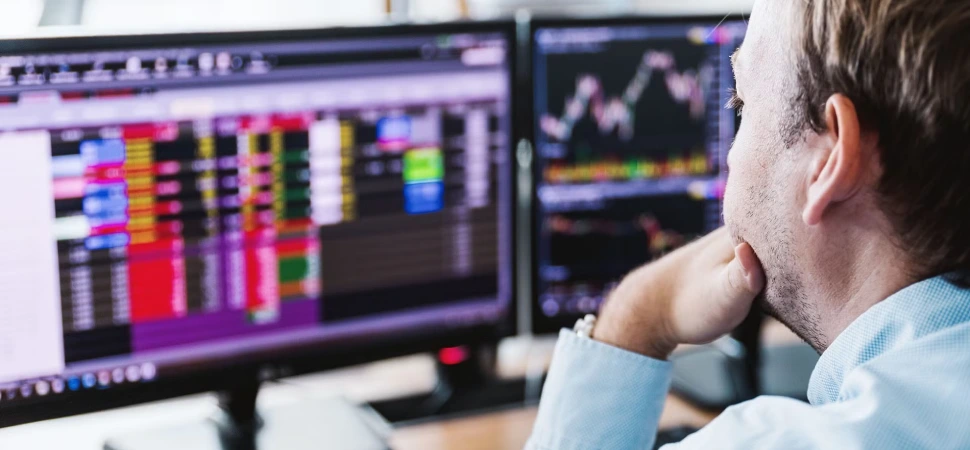11.06
Share Article6 tips on how not to go crazy on Forex trading

Forex trading is an exciting and potentially lucrative endeavor, but it comes with its own set of challenges. The rapidly changing nature of the market, the constant barrage of information and the inherent risk can take a toll on a trader's mental state. Emotions such as fear, greed and overconfidence can cloud the mind and lead to impulsive decisions that ultimately affect investment results and overall mental health.
Maintaining a healthy mental state is critical to success in Forex trading. A trader's emotional and psychological state directly affects his or her ability to objectively analyze the market situation, effectively manage risk and make informed investment decisions. Here are six basic tips to help traders find a balance between mental health and trading activity:
- Risk Management Plans and Strategies: One of the keys to maintaining a balanced mindset in Forex trading is to define an investment plan and risk management strategy. A comprehensive trading plan should include entry and exit criteria, risk tolerance and position sizing rules. Following the plan minimizes impulsive, emotionally driven decisions and helps you focus on long-term investment goals.
- Practice mind and stress management techniques: The stress and pressure associated with currency trading can take a toll on your mental state. Practicing mind management techniques such as meditation, deep breathing and yoga can help you stay energized, calm and focused. These practices will also help traders cope with the stress and anxiety they often face.
- Seek support and surround yourself with positivity: Trading can be a lonely occupation, but it doesn't have to be. Consider finding support from fellow traders, joining an online community, or working with a mentor or dealing coach. Surrounding yourself with positive influences and a support network will help you stay motivated and balanced, especially during tough times.
- Maintain a healthy work-life balance: Forex trading can be all-consuming, but it's important to maintain a healthy work-life balance. Make time for personal activities, socializing, non-investment related socializing, and hobbies. If online gaming is your hobby, don't deny yourself that pleasure. Follow the link to check out the best slots.
- Constant learning and personal growth: Forex trading is a dynamic and constantly evolving field, so you need to adopt a growth mentality to achieve long-term success. Constantly strive to improve your investment skills, learn from your mistakes and adapt to changing market conditions. Personal growth and self-improvement will not only improve your trading performance, but will also contribute to your mental well-being and sense of purpose.
- Celebrate success and learn from failure: Investing inevitably involves both winning and losing. It is important to celebrate even the smallest successes. At the same time, learn from your failures, analyze what went wrong, and use that knowledge to improve your strategy. Adopting a positive, growth-oriented mindset will help you weather the ups and downs of trading without becoming depressed or discouraged.

Taking care of yourself and your health
Maintaining good physical and mental health is very important for traders to perform at their best. Here are a few self-care techniques to improve your overall health:
- Exercise regularly: Physical activity helps to relieve stress, improve sleep and mood. Try to devote at least 30 minutes a day to moderate physical activity.
- Eat a balanced diet: A healthy diet improves cognitive function and mental clarity. Include a variety of foods such as fruits, vegetables, lean proteins and whole grains in your diet.
- Get enough sleep: Adequate rest is essential for effective decision making and emotional regulation. Aim for 7-9 hours of quality sleep each night.
- Take breaks: Taking regular distractions from your schedule and screen will help you rejuvenate and maintain perspective. Consider the Pomodoro Technique or taking regular breaks.
- Seek professional help if needed: If stress, anxiety, or depression persists, don't hesitate to seek help from a mental health professional. Early intervention can make a big difference.
Forex trading can be a challenging and emotionally demanding endeavor, but by prioritizing mental health and cultivating a balanced mindset, traders can improve their performance and overall well-being. Remember, a healthy mindset is just as important as a sound investment strategy. Utilize self-care techniques, seek support when needed, and always strive for personal growth and development. A balance between your trading activities and mental state will help you overcome the challenges of the foreign exchange market and achieve long-term success.

Full-time employment
Not everyone can transition fully into trading full-time, but if you are determined to make full-time trading work for you, here are 4 simple steps you can follow:
1. Are you ready to trade full time
Think about the logistics of trading full-time. Imagine going months without a paycheck and making a profit while still having to pay for food, rent, electricity, Hulu and Amazon Prime subscriptions. Still can't live without a job? Can't make big cuts for a few weeks and still maintain your lifestyle? Don't.
Have you spent enough time shopping? Before you make a decision, make sure you've found brokers you can trust and trading strategies (yes, that's right, plural) that have been profitable for you in all trading conditions. Of course, it goes without saying that you need to gain experience in making consistent profits before beginning to trade full-time. Transitioning to trading on a full-time basis also requires conviction. Do you really want to become a Forex trader? You shouldn't trade just because you know you won't have a steady job otherwise.
Are you willing to endure months without money? How about doing research related to the Forex market every day? If you think you're only doing it for profit and convenient working hours, don't take that leap now.
2. Set realistic goals for yourself
It's easy to fantasize about buying cars, yachts and private jets in your first few years as a trader, but we all know it's not that easy. Make inquiries about other full-time traders and find out how long it took them to make a living from their business. Also, base your trading goals on your past performance and possible market scenarios you see in the coming years. Based on your part-time income, will you be able to fund the life of a full-time trader? How much profit do you expect to make in one year? In five years? Do you consider this realistic?
3. Prepare for a lifestyle change
If you want to become a full-time trader, you need to make sure you are psychologically prepared for it and how it might affect the people around you. Unless you share an office with friends or plan to trade in a co-working center, you will most likely be trading from home. Remember that shopping from home is not without its challenges.
4. Treat trading like a business
The hardest part about trading full-time is remembering to treat it like a business. Sure, you can walk around in t-shirts and pajamas in front of screens, but that doesn't make full-time trading any less of a business than any other source of income. Dedicate office space, minimize distractions, and stick to a strict work schedule. Most importantly, keep track of your expenses (spreads, trading platform, broker commissions, etc.), monitor your profits and keep a trading diary to track your mistakes and progress. Making money trading on your own may seem difficult and boring - perhaps because it really is difficult and boring!
But if you've prepared yourself mentally and financially and developed a trading style that will make you money in the long term, there's no reason why you can't become one of those traders who have achieved financial independence through trading.
Reviews